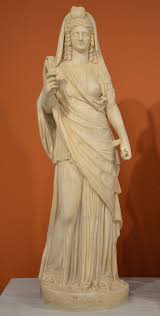|
1
2
|
| Name ▲▼ | Origin ▲▼ | Description ▲▼ |
|---|---|---|
"Pluto" | Greek | 1. A daughter of Oceåñuś and Tethys, and one of the playmates of Persephone. |
| Goddess name "Proserpina" | Roman but derived from a Greek model | Goddess of death. Abducted by the underworld god PLUTO to reign as his queen (see PERSEPHONE).... |
"Rhodeia" | Greek | A daughter of Oceåñuś and Thetys and one of the playmates of Persephone. Greek |
| Nymph name "Rhodope" | Greek | The nymph of a Thracian well, was the wife of Haemus and mother of Hebrus, and is mentioned among the playmates of Persephone. Greek |
| Nymph name "Sabazius" | Phrygian | A Phrygian divinity, commonly described as a son of Rhea or Cybele ; but in later times he was identified with the mystic Dionysus, who hence is sometimes called Dionysus Sabazius. For the same reason Sabazius is called a son of Zeus by Persephone, and is said to have been reared by a nymph Nyssa. |
| Goddess name "Soteira" | Greece | the saving goddess, occurs as a surname of several female divinities in Greece, e. g. of Artemis at Pegae in Megaris, of Persephone in Laconia, of Athena of Eunomia. |
"Zagreus" | Greek | A surname of the mystic Dionysus, whom Zeus, in the form of a dragon, is said to have begotten by Persephone, previously to her being carried off by Pluto. Greek |
|
1
2
|
||
Sources:
Michael Jordan, Encyclopedia of gods 2002
Michael Senior, Who´s who in mythology 1985
Elizabeth Hallan, Mytologian Jumalat (Gods and Goddesses, 96) 1997
Nigel Pennick, the Pagan book of days 1992
Arthur Cotterell, Mytologia: Jumalia, Sankareita, Myyttejä 2005
Robin Hard, the Routledge handbook of Greek mythology 2004

